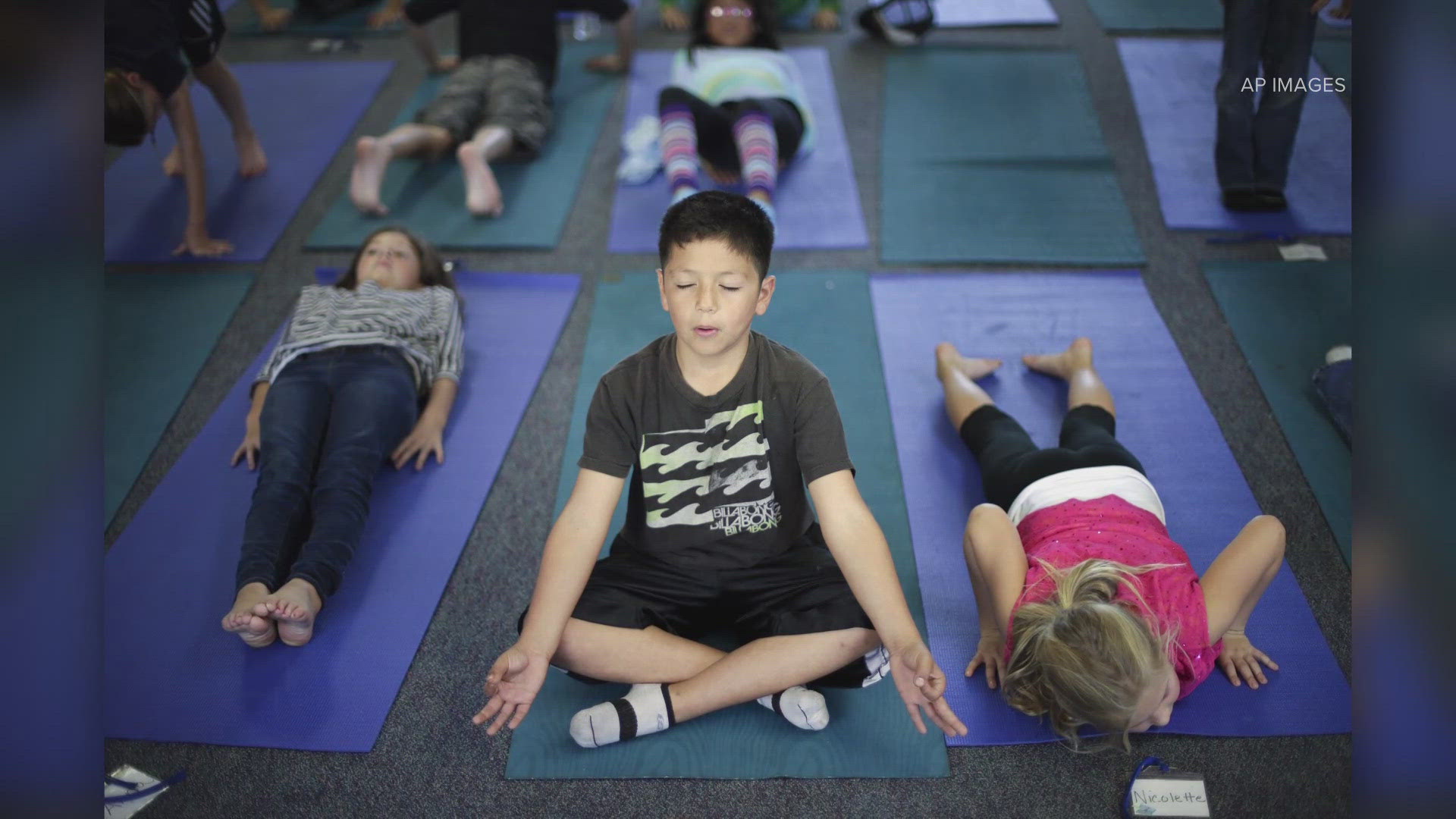Is your child struggling to focus? This is a question many parents grapple with as they navigate the complexities of raising children in today’s fast-paced world. With the increasing demands of schoolwork, extracurricular activities, and the ever-present allure of digital screens, maintaining focus can be challenging for children. Recent studies suggest that mindfulness meditation could be a valuable tool in helping children enhance their concentration and overall well-being.
Understanding the Focus Struggle
The Realities of Modern Childhood
Today’s children face a multitude of distractions. From smartphones and tablets to social media and online games, the digital world can be overwhelming. It’s not just about entertainment; even educational apps and tools can make it difficult for children to prioritize and manage their attention effectively.
Academic Pressures
The academic environment has also become more demanding. With rigorous curriculums, frequent assessments, and high expectations, children often find themselves struggling to keep pace. The pressure to excel can lead to stress and a diminished ability to concentrate on their studies.
The Science Behind Focus and Concentration
Cognitive Development
Understanding cognitive development is crucial to addressing focus issues. Children’s brains are still developing, particularly in areas related to executive functions such as attention, memory, and impulse control. These skills are paramount for effective learning and concentration.
Attention Deficit Hyperactivity Disorder (ADHD)
For some children, focus issues could be indicative of ADHD, a condition that affects a significant number of young individuals. ADHD can manifest as a persistent pattern of inattention, hyperactivity, and impulsivity, making it difficult for children to concentrate on tasks.

What is Mindfulness Meditation?
Definition and Origins
Mindfulness meditation traces its roots to ancient Buddhist practices but has gained widespread popularity in recent years due to its evidence-based benefits. It involves paying intentional, non-judgmental attention to the present moment, cultivating awareness and acceptance of one’s thoughts and feelings.
The Core Practices
Mindfulness meditation practices can vary, but they typically include:
- Breathing Exercises: Focusing on the breath as a way to anchor attention.
- Body Scan: Noticing sensations in different parts of the body.
- Guided Imagery: Visualizing peaceful and calming scenarios.
- Mindful Walking: Paying close attention to the movements and sensations of walking.
The Benefits of Mindfulness Meditation for Children
Enhancing Concentration
Several studies have shown that mindfulness meditation can improve attention and concentration in children. By practicing mindfulness, children learn to sustain their focus on tasks, reducing the frequency of mind-wandering.
Reducing Stress and Anxiety
Children, like adults, experience stress and anxiety. Mindfulness meditation has been proven to reduce these feelings by promoting relaxation and a sense of calm. This can result in a more conducive learning environment.
Improving Emotional Regulation
Mindfulness meditation helps children better understand and manage their emotions. This improved emotional regulation can lead to fewer outbursts and a more stable mood, allowing for better concentration and focus.
Boosting Academic Performance
By enhancing cognitive functions and emotional well-being, mindfulness meditation can indirectly boost academic performance. Children who are less stressed and more focused are likely to perform better in school.
Fostering Compassion and Empathy
Mindfulness encourages children to be more aware of their own thoughts and feelings, as well as those of others. This heightened empathy can improve social interactions and create a more positive, supportive learning environment.

Implementing Mindfulness Meditation for Children
Starting the Practice
Begin with simple, short sessions. Young children may benefit from sessions that last just a few minutes, gradually increasing as they become more comfortable with the practice. Consistency is more important than duration.
Creating a Mindful Environment
Set up a quiet, distraction-free space where your child can practice mindfulness. It’s beneficial to have a designated area that they associate with calm and focus.
Guided Sessions and Resources
There are numerous resources available to help guide your child through mindfulness meditation. Apps, online videos, and books designed for children can be excellent starting points. Guidance from a skilled practitioner can also be invaluable.
Involving the Whole Family
Mindfulness meditation can be a family affair. Practicing together not only models positive behavior for your child but also reinforces a collective commitment to mental well-being.
Practical Tips for Parents
Be Patient and Supportive
Mindfulness meditation is a skill that takes time to develop. Be patient with your child and offer constant support. Celebrate small successes and encourage persistence.
Integrate Mindfulness into Daily Activities
Encourage your child to practice mindfulness in everyday activities, such as eating, walking, or even brushing their teeth. This helps them integrate mindfulness into their routine naturally.
Encourage Journaling
Keeping a mindfulness journal can help your child reflect on their experiences and track their progress. It’s a great way for them to express their thoughts and notice the benefits of their practice over time.

Case Study: Success Stories
The Davis Family
The Davis family noticed a significant improvement in their son’s focus after incorporating daily mindfulness sessions. Initially hesitant, their ten-year-old eventually found solace in the practice, which helped him manage his schoolwork more effectively.
The Parker School
At Parker School, a structured mindfulness program was introduced. Teachers reported better classroom behavior, enhanced concentration, and a noticeable decrease in conflicts among students.
Understanding the Research
Key Studies and Findings
Several studies have highlighted the benefits of mindfulness meditation for children. A study by Harvard Medical School found that regular mindfulness practice improved cognitive functions such as attention, memory, and learning ability in children.
Expert Opinions
Dr. Payal Kohli, a renowned expert in the field, emphasizes the potential of mindfulness meditation in helping children focus. She suggests that incorporating mindfulness practices into daily routines can have profound positive effects on children’s mental health and academic performance.
Statistics: Mindfulness and Academic Performance
| Study | Main Findings |
|---|---|
| Harvard (2015) | Children who practiced mindfulness showed a 15% improvement in math scores over a year. |
| UC Berkeley (2017) | Mindfulness practices led to a 20% increase in attention span in children aged 7-11. |
| Yale (2018) | Reduction in anxiety levels by 30% among children practicing mindfulness regularly. |

Common Challenges and Solutions
Resistance from Children
It’s normal for children to be resistant to mindfulness meditation initially. Make it fun by incorporating games or using imaginative scenarios. Gradual exposure can also help ease them into the practice.
Maintaining Consistency
Consistency can be challenging amidst busy schedules. Try to find a regular time each day for mindfulness practice, even if it’s only for a few minutes. Flexibility can help accommodate the practice within the family’s routine.
Overcoming Skepticism
Some parents may be skeptical about the effectiveness of mindfulness. Educating yourself about the science and benefits, and perhaps even trying it yourself, can help build confidence in promoting the practice to your child.
The Role of Schools
Integrating Mindfulness into the Curriculum
Schools can play a crucial role in incorporating mindfulness into the daily routine. Short mindfulness sessions at the beginning or end of a school day can help create a more focused and calm learning environment.
Teacher Training
Training teachers in mindfulness can enable them to guide students effectively. Empowered teachers who practice mindfulness themselves can better support their students’ practice.
Feedback from Educators and Students
Gathering feedback from both teachers and students can help schools tailor mindfulness programs to better meet the needs of the school community. Continuous assessment and adjustments ensure the program remains effective and engaging.

Looking Forward: The Future of Mindfulness in Education
Expanding Research
Ongoing research is essential to continue validating and understanding the benefits of mindfulness meditation for children. Longitudinal studies can provide deeper insights into its long-term effects on cognitive and emotional development.
Policy and Advocacy
Advocating for mindfulness programs in schools can lead to broader policy changes. As more educational institutions recognize the benefits, we may see mindfulness becoming a standard part of curriculums nationwide.
Global Perspectives
Different cultures approach mindfulness in varied ways. Exploring global practices can enrich our understanding and implementation of mindfulness meditation, making it more inclusive and effective.
Final Thoughts
Children’s ability to focus profoundly impacts their academic success and overall well-being. Mindfulness meditation emerges as a promising tool to address attention issues, reduce stress, and enhance emotional regulation. By integrating mindfulness practices into their daily lives, both at home and in schools, we can help our children navigate the demands of modern childhood with greater ease and resilience.
Whether you are just beginning your mindfulness journey with your child or looking to deepen an existing practice, remember that every small step counts. The path to improved focus and well-being is a journey worth embarking upon, with mindfulness meditation offering a guiding light along the way.

